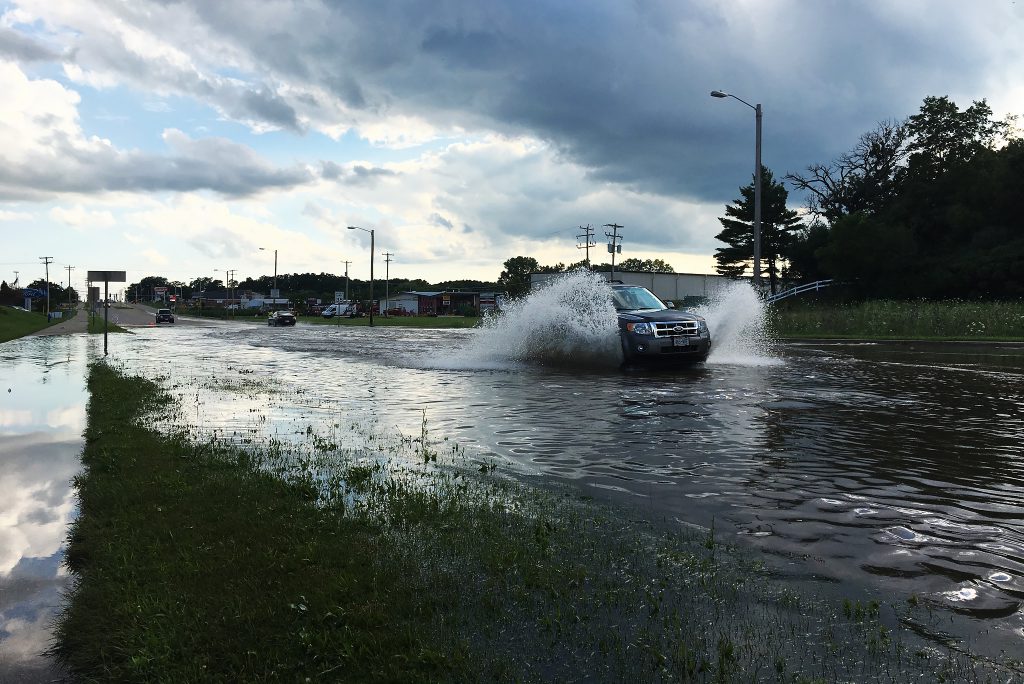Climate Change Effects Already Harming Wisconsin
Increased flooding poses the risk of contaminating drinking water systems.

Flooding in Burlington, WI in 2017. Photo by Capt. Joe Trovato/Wisconsin Department of Military Affairs.
The health effects of climate change on Wisconsinites are starting to emerge and will only get worse as the global situation worsens — especially for children, the elderly and the immunocompromised, according to a new report from researchers at UW-Madison and state health workers.
In Wisconsin, climate change is going to cause increased temperatures as well as more rainfall over fewer days, causing flooding. These simultaneous effects, more heat and more flooding, are likely to increase the likelihood of heat stroke, asthma and insect-borne diseases, the report states.
If Wisconsin were able to take meaningful action on mitigating climate change and move to 100% clean energy, the state would be able to avoid, among other illnesses, 1,910 premature deaths, 650 respiratory ER visits and 1,580 cases of acute bronchitis per year, according to the report.
That kind of heat, across the state, could cause heat stroke in children and older people, as well as outdoor workers and athletes.
Flooding will also increase in Wisconsin as climate change worsens and the amount of rain increases over a more compressed period. The health problems caused by flooding include contaminated ground water, asthma caused by mold in homes, toxic algae blooms and the increased spread of mosquito-borne illnesses.
“Wisconsinites who rely on well water are some of the most likely to be harmed by water contamination due to flooding,” the report states. “However, municipal water systems are also at risk. The treatment processes for public utilities vary greatly depending on the county and may not disinfect their water for certain bacteria. Those who live in regions more susceptible to flooding are also at risk for the myriad of health risks caused by extreme precipitation. Anyone can be impacted by flooding as these events become more common in our state, including healthcare facilities.”
The report also lays out the health benefits of quickly acting to stop climate change, including through more sustainable food systems and healthier habits in urban areas such as biking and walking as transportation.
Now that the country is already starting to see the harms of climate change through extreme weather events such as wildfires in the West and hurricanes in the Southeast, the report urges Wisconsin’s public leaders to take action not to stop climate change but to shield those most likely to be harmed — people of color, children and the elderly.
“Leaders in local and state government should immediately begin focusing on preparedness, providing the support needed to build resilience against damaging climate change impacts,” the report states. “In collaboration with leadership in other public works departments, government leaders must also take ambitious steps to prevent the worst health impacts of climate change, including fully embracing clean energy, walkable communities, public transportation, and green building design.”
Reprinted with permission of Wisconsin Examiner.





















